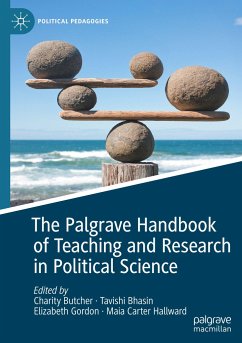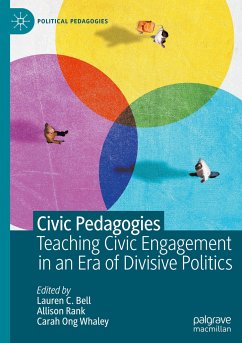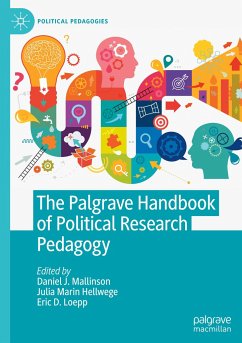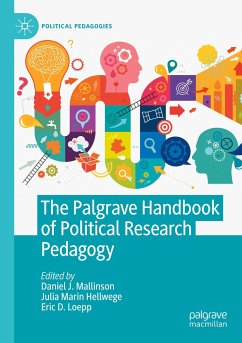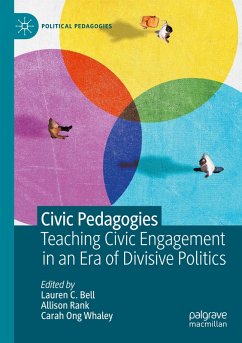
The Palgrave Handbook of Teaching and Research in Political Science
Versandkostenfrei!
Versandfertig in 6-10 Tagen
151,99 €
inkl. MwSt.

PAYBACK Punkte
76 °P sammeln!
This book provides a resource for political science faculty wanting to increase their research productivity and/or teaching effectiveness in a time and resource efficient way. Faculty from various subfields and institution types offer examples of how they align their research and teaching activities to "get more bang for their buck." While some contributors discuss projects within the Scholarship of Teaching and Learning (SoTL) research tradition, others go beyond this approach and integrate their teaching and research in other ways. As a result, this volume offers diverse, innovative, and pra...
This book provides a resource for political science faculty wanting to increase their research productivity and/or teaching effectiveness in a time and resource efficient way. Faculty from various subfields and institution types offer examples of how they align their research and teaching activities to "get more bang for their buck." While some contributors discuss projects within the Scholarship of Teaching and Learning (SoTL) research tradition, others go beyond this approach and integrate their teaching and research in other ways. As a result, this volume offers diverse, innovative, and practical ways faculty can leverage the teaching/scholarship connection to both improve scholarly productivity and ground political science instruction in pedagogical literature.



